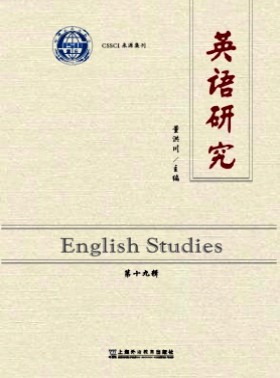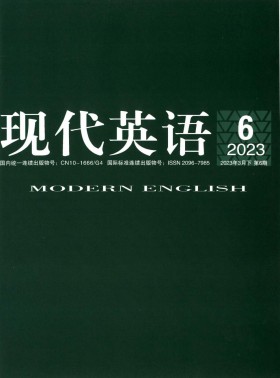前言:中文期刊网精心挑选了英语信函范文供你参考和学习,希望我们的参考范文能激发你的文章创作灵感,欢迎阅读。

英语信函范文1
1.专业词汇:外贸英语信函中对专业词汇的翻译务必精确、符合经贸专业要求。外贸英语中的价格术语意义固定:有的是单独的词,inquiry(询盘)和offer(报盘);有的是则是由几个词构成,todrawonsomebody(向某方开出汇票)。这些专业词汇的翻译稍微有差错就会给企业造成负面的影响甚至巨大的损失,如曾有则报道说,某译者错将“不锈钢”译为“炭素钢”,这两字之差就给企业造成近20万元损失。
值得注意的是,有些外贸英语专业词汇与其本意大相径庭。Document本意为“文件”,而在外贸英语中则为“单据”,如AnL/Cnormallyspecifiesthedocumentsthatarerequiredbythebuyerandthedatebywhichthegoodsinquestionmustbeshipped。(信用证上,通常规定了买方所需的单据,以及有关货物的运货日期。)
2.歧义词:英语中常常会出现一个词汇有多重意义,而这几个意义恰好又是对立的。因此在外贸英语信函的书写或翻译中,应避免使用歧义词。面对这类词汇应及时发现,并立刻和对方取得联系,以便及时纠正,以免使缔约双方发生分歧,为日后贸易带来后患。如inaweek可指在withinaweek(一周内),又可以指afteraweek(在一周后),这就必须要与对方商榷,及时换上表义明确的词。
3.英美词汇差异:外贸英语信函的翻译还应注意英美词义的差异:在英式英语和美式英语中,同一个词可能有不同的含义。在这方面的典型例子即是单位的差异,如billion在美式英语中意思为“十亿”,而在英式英语中,则代表“万亿”。因此,在翻译中一定要注意英式英语和美式英语使用场合。
4.缩略语:缩略术语在外贸英语信函中也很常见,其意思对外贸交易极其重要。这里仅介绍几种常见的缩略术语的翻译法。
(1)音译。如:AIDS艾滋病;DDT滴滴涕;OPEC欧佩克。
(2)用汉语的缩略语译如:UFO飞碟;UNESCO联合国教科文组织;V.F视频;XL特大。
(3)部分译,部分不译如:DNAfingerprintingDNA鉴别术;FOBShanghaiFOB上海价。
(4)还原成原文意译如:EconomistsplacedgreatertrustintheCPIreport,contendingthatthesurgeinthewholesaleindexwasmerelyafluke。(经济学家对消费者物价指数比较信任,认为批发物价指数的飊涨只是偶发现象。)(CPT=consumerpriceindex:消费者物价指数)。
(5)外来语译法与以上方法差不多,以意译为多。如:EP(单方面)—exparte(拉丁语);E/R(在途中)-enroute(法语)。
5.套用格式化语言或句型对应翻译法:以签署文件、合同等为目的的外贸英语信函,多套用已有格式。在翻译的时候,应用相应的中文格式,用程式化语言翻译即可。它的特点主要表现在一些套用、固定搭配及句式结构的应用中。译者可相应地采取“套用句型对应方法”来翻译。在此类商业信函中,对方一般也会采取正规书面语,风格繁冗。尤其是为了增加严肃、正式的意味,他们常常会选用带法律、语言保守倾向的古体词。常见的有以”here;there;where”为词根的词,如:herein;hereof;herewith;hereby;thereby;therefore;whereas;whereby等。翻译的时候不一定要字字对应,可以在其他地方以词汇手段予以补偿,用相对比较古雅的词汇将原文的文体风格反映出来即可。6.整体格式差异:整体格式差异主要体现在英文与中文信函中。众所周知,英文日期常写于右上方,而中文日期常写于右下方。英文称呼使用复数Sirs/Gentlemen,而在中文中,则体现为统称形式的整体单数。虽然,按照国际贸易惯例,外贸电函英译汉时,可保留英文外贸函电的格式,也可套用中文外贸函电的格式。但是,根据惯例,建议使用中文格式,以取得整体美感。
二、用于达成友谊、交流感情的商业信函的翻译
除用于正式交易的外贸英语信函外,为达成贸易双方的友谊,商家会特别注意礼貌,因此会大量写作交流情感类信函。对这一类信函,译者翻译的时候,应注意选取适合的词,使用翻译具有“信、雅、达”的美感。并且提醒注意的一点是,商人毕竟是商人,他首先考虑的是商品、质量及相关问题与条件,而非客套与人称,汉译时,应突出重点信息,精简繁枝冗叶,以达到强化重点的目的。
针对外贸英语信函所带有的书面语体的语言结构特点,译者在翻译时,应该选择相应的书面语。在中文外贸信函中,使用的是介于文言文与口语之间的半文言文体与之相对应。如Sincerelyyours汉译为“谨上”即可。而针对港台地区保留大量古语的特点,译者在翻译时,还应该把开头的“先生”之类词婉译为“敬启者”。在传统英语贸易辞令中,大量套语,更应该恰当增减。如:Wearepleasedto…;Wehavepleasurein…;Weacknowledgewiththanks…这些套语,产生了诸如Wearelookingforwardwithinteresttoyourreply.等句式,这里若直译为“我们带着极大的兴趣盼望您的答复。”显然,这种翻译拖沓而且生硬,只要稍微套用一下格式,采取婉译方式,译为“盼复”,则简洁明了。类似的情况还有:Yourpromptreplywouldbegreatlyappreciated。(直译为“贵方的快速回复将使我们不胜感激”;婉译为“即复为谢”)
英语信函范文2
[关键词] 商务信函;写作;原则
【中图分类号】 H05 【文献标识码】 A 【文章编号】 1007-4244(2013)12-303-1
21世纪是经济日益全球化的世纪,中国与世界各国的交往日益频繁,国际贸易事业发展迅猛。但随着科学技术的发展,国际间的贸易往来更多地使用传真与电子邮件来传递商务信函。因而,英语商务信函成为一种便宜而有效的沟通媒介。英语商务信函是一种最常见的商业联系媒介,它是一种通过电脑或者打字机“书信”来完成的人际间交往。实际上商务信函是一种“推销”函,写信人总是在推销着什么,可能是一种产品、一项服务、一项专利、一个观念,甚至是推销自己或树立自己所在公司的形象等。
一、礼貌原则(courteousness)
在商务信函写作中乃至所有商务活动中,礼貌都发挥着重大的调节作用。它是有效的自我推荐名片,有助于老关系的加强和新关系的建立。礼貌意味着在信函中非常巧妙的表示出诚挚的友情,诚挚的感谢,真诚的礼貌,体贴的理解和由衷的尊重。
商业信件要简洁明了,既要注意信件的措词得体,又要符合商业信件礼貌周到的原则。写信时要注意礼节,不要盛气凌人,避免出现命令或粗鲁等不恰当的口吻。写信过程中除了多使用诸如please;your kind inquiry;I would appreciate it if you would等短语外,还需做到以下几点:语气要真诚、善解人意以及考虑周全;避免使用伤害、贬低的短语,如:your neglectful attitude;impatience;we deny your claim 等;避免使用含有性别歧视的词语,如 businessman;chairman 等。
二、准确原则(correctness)
准确表达不仅仅指英语语法、标点符号和拼写层面,更重要的是书信的内容要叙述正确,买卖双方的权利、义务、违约条款、付款方式、重要数字等信息都属于准确表达的范围。一封表达准确的商务信函,不仅能够促使商务活动的有效进行,还能够避免不必要的纠纷。
三、完整原则(completeness)
商务信函的内容力求完整,需回答来信所提出的所有问题和要求,或是包括写信人希望收信人做出积极反映的一切问题及情况(when、where、who、what、how )。在书写商务信函时,应该对信函的内容做到心中有数,避免一件事分多次书信传递给对方。一封商务信函只有包含了所有必要信息才能达到它的理想效果,不完整的信函不仅有失礼貌而且会令收信人对你公司产生不好的印象。
四、清楚原则(clarity)
清楚是商务英语信函写作最重要的原则。一封含糊不清、辞不达意的书信会引起误会与歧义,造成贸易损失,甚至会引发诉讼纠纷。清楚表达应注意选择正确、简练的词,避免使用一些含糊不清、模棱两可的词,条理清晰,表达准确。一般地,商务信函的撰写者必须将自己的意思清晰地表达出来,以便对方准确理解。
五、简洁原则(conciseness)
简洁指的是信函内容完整,语言简单而不失清楚,用最少的语言表达最为丰富的内容。简洁被视为商务信函写信的第一要义。故撰写商业信件时要摒弃传统信函中的陈词滥调和套话,采用简洁、直接的句式进行写作,简明扼要,精炼丰富,长话短说,避免罗嗦,用尽可能少的简单的文字,完整清楚地表达需要表达的意思。
六、具体原则(concreteness)
信函应该写得具体,明确,而不能含糊,抽象,笼统。尤其像报盘,询问贸易条款这类需要具体答复的信函,就更加强调写作时的具体。这样会使所表达的内容准确而又生动,使交流的内容更加清楚,更有助于加快事务的进程。例如,商品的某些质量和特征要用准确的数字,避免使用“长”,“短”,“好”这样的词语。时间用年月日标明,必要时甚至要注明小时,分钟,避免使用诸如“昨天”“下个月”“马上”等表达用语。
七、体贴原则(consideration)
体贴原则强调对方的情况而非我方情况,要体现一种为他人考虑、多体谅对方心情和处境的态度。当撰写商务英语文书时,要站在对方的立场去考虑他们的各种不同的愿望,要求,兴趣和困难,充分理解对方的心情、处境,寻找一种最好的方式将信息传递给对方。
八、结论
商务信函是买卖双方索取、传递信息,处理贸易活动中相关事宜、沟通联络感情的重要方式,同时也体现着一个公司或机构的商务形象。商务信函在商务活动中起着沟通桥梁的作用,它能够具体而快捷地传递双方各类相关商务信息,节约双方的时间,从而实现商务活动的便捷与高效。因此,商务信函对内容、形式、措辞等各方面都有要求。在日常的商务活动中,撰写商务信函时,应遵循商务信函写作的基本原则,有效传递信息,从而使商务信函更有利于双方的沟通合作。
参考文献:
[1]程润明.国际贸易交际技巧[M].上海:上海外语教育出版社,1994.
[2]张燕彬.国际商务礼仪[M].沈阳:辽宁教育出版社,2001.
[3]祈寿华.新世纪实用英语交际指南(旅美)[M].上海:上海外语出版社,2003.
英语信函范文3
关键词:英语商务信函;书写;策略
1 英语商务信函的写作意义
随着世界经济的快速发展和全球一体化进程的加速,英语商务信函扮演着越来越重要的角色。在快节奏的现代商务活动中,写作商务信函最直接的目的就是进行有效的沟通和交流。它是国际商务往来最常用的联系方式,也是对外贸易活动的载体。写出一份准确严谨、简洁明了、规范得体、彰显个性的英语商务信函不仅能够促成交易的达成,而且可以发展同客户的良好关系,以及达成新的业务方面起着积极的促进作用。
2 英语商务信函书写常出现的问题
2.1 词汇错误
在商务英语信函的写作中,同一个词汇在商务中具有完全不同的含义。 “credit “本意“信誉、声望”,在商务中“信用证”。“offer” 提供,在信函中"报价”。Promotion “提升“,在信函中”促销“。Confirm “证明”,在信函中“保兑”。在信函写作中,不要用其他词代替信函中的意思,严格遵守它的含义。
2.2 词汇陈旧
S着时代的发展和进步,商务英语词汇的规模在不断扩大。国际经济的快速发展和计算机技术的高度发达,许许多多商务英语词汇应运而生。“a going concern,” 盈利企业。”a leap in the dark “ 冒险举动。这些新的商务词汇的出现,为商务英语信函的交流提供了便利。在写作中,要不断地跟上时代的发展,与时俱进,更新词汇,保持商务信函的新鲜度,与世界接轨。
2.3 主动语态多
在商务信函中,被动语态使用较多。为了使信函的表达准确无误,严谨周密,不引起歧义,提高交流的效率,使用了大量的被动语态。主动语态是表示主语是谓语动作的使动方的语态,信函中有时动作的参与者和发出者是谁不清晰,主动语态使用较少。
3 解决途径
3.1 书写层面
(1)大写
在英语产品介绍信函和产品推销信函中,为了给读者留下深刻印象达到过目不忘,产品名称的所有字母大写。In the brochures, MOUNTAIN 10 is very useful for the kitchen.另外,为了突出产品特点,吸引客户眼球,使读者快速抓住重点,迅速做出决定,交易马上达成,表达产品特点的词组所有字母也大写。CONVENIENT AND ECONOMICAL .
(2)逗号
在英语商务信函中,逗号使用较多。逗号用在复句内各分句之间的停顿,用逗号隔开表达了不同的意思,又糅合在一个完整的句子里,避免意思含混不清,帮助读者正确理解信函内容,顺畅做成交易,避免误入歧异。
(3)冒号
在英语商务信函中,冒号的使用常用来引导下文。Quantity: 1000cases. Payment : by L/C.商务信函需要用简洁明了的语言表达内容,冒号引导下文节约了字数和空间,读者简易轻松理解大意,快捷抓住内容核心,节省了时间,方便了业务。
3.2 词汇层面
(1)古词
在英语商务信函中,古词的使用具有鲜明的文体特点-庄重、严肃、正式。We hereby mail one catalogue.恰当使用英语古词提升整篇信函的庄重性和严肃性,英语商务信函代表企业或公司的形象,商谈业务涉及企业之间巨大的经济效益,严肃认真的态度是商务信函必备的态度,古词的使用表明了其特点。
(2) 数词
在英语商务信函中,准确的数字对于双方贸易上的交往成功非常关键。A discount 5%.数字的使用不能有半点马虎随意,否则会造成重大经济损失和亏本,有时直接影响到公司的声誉,产生法律纠纷。
(3)形容词
在英语商务信函中,积极乐观的词可以给客户带来身心愉悦之感。快乐高兴的心态对于商务交往非常重要和关键。顺利达成交易和成功奠定业务基础为未来的贸易往来打下了牢固的基础。Glad, excited, suitable, convenient, pleased.这些词对商务交易达成起着积极的作用。
3.3 句法层面
(1)虚拟语气
在英语商务信函中,良好的沟通和交流非常重要,保证了整个商业业务流畅进行和运作。使用虚拟语气委婉含蓄,商讨交流的余地较大,对方容易接受。If you could consider, I would appreciate it.这样的交流语气,有利于维护双方的合作关系和保持良好的友谊。
(2)被动语态
英语商务信函被动语态使用较多。Your goods has been delivered to another company.它是商务业务往来通信, 表达上需要准确和规范;措辞和语气上需要礼貌委婉,严谨周密。信函涉及双方权利和义务,可作为解决双方争端的法律依据。
(3)复合句
英语商务信函对简洁性和严谨性都有一定的要求,为了保证严密的逻辑性和信函的正式性,信函需要复合句As this falls within the scope, we are desirous to establish relation with B.复合句结构复杂,表达严谨周密,商务信函中,复合句使用较多。
3.4 语篇层面
(1)省略
英语商务信函具有“节约经济”特点,双方繁忙的业务交往需要快捷简洁交流,为了避免繁琐,信函中常用省略。同时尽速突出新的商务信息,紧凑衔接语篇。We hope this shipment will be examined by more(shipment ).
(2)重复
重复指某个语言成分多次出现的现象。在英语商务信函中,为了突出致函方的意图,加深阅读者对这一主题的印象,希望对方引起关注和重视。We have trouble in shipment.the trouble is the cargo.
(3) 连接
在英语商务信函中, 表示时间、因果、转折、递进、并列、条件等连接词的使用体现了信函的逻辑性和连贯性。这些连接词的前后关系非常紧密,巧妙衔接前后两部分内容,读者清晰知道信函内容,有效提高了信函语篇的粘结度。As soon as, as, therefore, when, where, so that 等。
4 结束语
作为当今社会活动不可缺的一分子,英语商务信肩负着建立贸易关系、沟通商务信息、塑造商务形象的社会职能。它代表公司形象,是公司的脸面,是企业对外公共宣传关系中的重要手段,对于公司树立良好的形象极为重要。希望写作策略的研究使英语爱好者能够深入了解其特点,学习写英文商务信函,提高英语写作能力,增长见识,开阔视野,更好服务于经济社会。
参考文献:
1.梁树新.现代国际商务信函[M].北京:人民邮电出版社,2008.
2.李海芳.ESP理论视角下商务英语语言特点的探[J].华章,2013,9(17):205-206.
3.钱瑗.实用英语文体学[M].北京: 北京师范大学出版社,1991.
4.张学芳.基于商务英语的语言特点谈商务英语翻译技巧[J]. 才智,2014,7(21): 271-272.
英语信函范文4
关键词:商务英语信函 礼貌原则 礼貌敬语
一、引言
入世以后,中国与世界各国的经贸往来更加频繁。商务英语不仅是国际商务活动中通用的一种ESP语言,还是对外经济活动中的重要工具。商务英语函电则成为世界各国之间相互沟通、开展业务、达成交易、建立友好合作关系等国际商务活动的重要媒介。商务英语信函是现代商务活动中一种必不可少的工具,在国际商务交际中起着重要的作用。商务英语信函写作遵循7C原则,即礼貌(courtesy),清晰(clarity),简洁(conciseness),正确(Correctness),具体(concreteness),体谅(consideration),完整(completeness)。对于商务英语信函,最突出的特点就是礼貌原则,一封礼貌的信函,得体的表达直接影响到双方贸易关系能否建立,企业能否树立职业道德形象,双方能否最终达成贸易合作。本文将从三个方面来浅析商务信函写作中的礼貌原则。
二 、礼貌原则
礼貌是语言活动的一条重要准绳,是建立良好人际关系的前提,礼貌原则是商务英语函电的最突出特点之一。礼貌的英文是courtesy,它有很多种解释:good manners, courteous behavior; a polite of kind action or expression; gracious politeness; a polite, helpful, or considerate act or remark。从上面的解释中不难看出,商务英语信函时要遵从礼貌原则,其用词应该是“a polite way, helpful way, a kind expression”。礼貌是日常生活行为中具有道德和伦理意义的一项行为准则,包括人们为维护和谐的人际关系所做出的种种努力。礼貌一词在语用学研究领域有其独特的理论内涵。英国语言学家Leech对礼貌原则解释为:①得体准则(Tact Maxim)、②慷慨准则(Generosity Maxim)、③赞誉准则(Approbation Maxim)、④谦虚准则(Modesty Maxim)、 ⑤一致准则(Agreement Maxim)和⑥同情准则(Sympathy Maxim)。
三、礼貌原则在商务英语信函写作中的应用
1.礼貌敬语的使用
商务英语信函写作中的礼貌敬语使用非常频繁,主要体现在以下几个方面:
①用于称呼语(Salutation)
称呼是信函开头的礼貌问候,商务信函的开头称呼是有讲究的。商务信函中常用的正式问候语是:当称谓单个人时,一般使用“Dear Sir”或“Dear Madam”;当称谓两个或多个人时,使用“Dear Sirs”或“Dear Madams”,或“Gentlemen”。如果有明确的收信人,那么可以使用如下正式而亲切的称呼:
Dear Mr. Smith,
Dear Ms. Zhang,
Dear Prof. Hobart,Dear
Dr. Patricia,
如果收信人是女士,不知道结婚与否,都趋向于用“Ms.”作为礼貌的尊称。
②用于正文中(Body)
信函正文部分是核心内容,向收信人传达信息,一封礼貌的信件不仅可以达成交易,而且还可以促进友好关系,在写信时,要避免盛气凌人或是命令的口吻,避免用粗鲁、不礼貌、不恰当的语言。多用诸如“Please,very glad, very grateful, with thanks, would be appreciated, have pleasure, be obliged…”等表示尊重对方的词语。
③ 用于结尾谦称(Complimentary Close)
结尾谦称是结束信函的礼貌方式。结束语和信头的称呼语同等重要。如果合作伙伴是你熟悉的朋友,则可以用非正式用语“best regards, best wishes”等结尾。如果是第一次和对方合作,则要使用正式用语表明你的客气和认真的态度,这时可以使用如:“Yours Truly,Truly Yours,Sincerely,Sincerely yours, Yours faithfully…”等。如果对方是你非常敬重的人,则需用“Respectfully, Yours respectfully”表示你的礼貌和对对方的敬意。当然,结尾谦称要与信函开头的称呼保持一致。
2. 礼貌肯定积极语言的使用
商务英语信函中应避免消极否定语言的使用。人们总是乐于接受肯定积极的语言。例如:
A1. If you can not meet us halfway, we will not see our way clear to entertain the business.
A2. If you will not effect shipment in time, we will not catch the season.
A3. We will not arrange shipment until the end of August.
以上三个句子都使用了否定消极的语言,传递的信息会让对方感觉非常的不舒服,容易产生消极的想法,进而影响合作的兴致。我们可以考虑做如下改动:
B1. If you would meet us halfway, we can see our way clear to entertain the business.
B2. If you can effect shipment in time, we will catch the season.
B3. We will arrange shipment at the end of August.
转换成积极肯定的语言之后,交易的双方多了几分客气,即使到时候不能完成的事情,也要让对方有一定的希望。
3、多种语气的使用
商务英语信函中,各种语气的句子也屡见不鲜。其中表达委婉、疑问和虚拟语气的句子很多。
a.委婉语气的使用。每一种语气都有一定的语用场合,也都能达到一定的交际效果。在贸易活动中,贸易双方总会有产生分歧的时候,为了避免直接冒犯对方,写信时会采用委婉温和的语言。如:
A1. We would appreciate it if you please let us know the ruling prices of the above items. (委婉提出请求)
A2. I am sorry to say your offer seems to be on the high side. (委婉拒绝)
A3. We sincerely hope that you will take this matter into your careful consideration.(委婉表示不满)
b.疑问语气的使用。疑问语气一般是通过询问对方的要求或意愿来传达一种请求, 比直接用肯定句表达的语气间接、委婉,能让对方感觉到受人尊重,很容易赢得对方的好感。如:
A1. Will you please reply us before Friday?
A2. Are the goods to be flown or shipped to Fuzhou?
A3. Could you offer us a lower price as soon as possible?
c.虚拟语气的使用
d.虚拟语气一般用来表达写信人的猜测、愿望、建议、请求等。它是一种礼貌表达愿望的方式, 可以给双方留下更多商量的余地。商务信函中常用“ I wish, as if, could/would//should have done”等句型。例如:
A1.We would very much like to solve the matter in a friendly way.
A2. Would it be possible for you to send us your price-list as soon as possible?
A3. I would be pleased if you could accept my apology.
四、 小结
商务英语信函不仅是一种贸易沟通方式,也是建立友谊、吸引客户的手段。在国际贸易活动中,商务英语信函发挥着越来越重要的作用。当用商务英语信函进行贸易交流时,突出商务英语信函的特点,注意体现礼貌原则,实现贸易双方的有效沟通,促进贸易的最终达成。
【参考文献】
1.腾美荣, 许楠. 外贸英语函电〔M〕北京:首都经济贸易大学出版社
英语信函范文5
1.1 literature review
This study focuses on the morphological and syntactic features of English business correspondences. In order to finish this study effectively, I read some related literatures and this helps me a lot. Now I shall do a detailed analysis about the literatures.
In the article “the features and application of English business correspondences in e-time”, the writer explained his main idea in accordance with the traditional principle “seven Cs”, that is Completeness, Clearness, Concreteness, Conciseness, Correctness, Courtesy and Consideration. This article can be divided into two parts. The writer firstly makes an analysis of the business correspondences and makes sure that the readers are clear about the layout of business correspondences. And then the writer states the unique features of business correspondences in e-time. “This part is divided into two sub-parts to analyze the features, one from the aspect of the form of business correspondences and the other from the aspect of contents”[1]. At last the writer states the meaning of his study.
The article “the grammatical features of English business correspondences” by Gao Jiayong “talks about the features from five aspects”[2], but he viewed the features just from the syntax. Articles written by other people also account for the features, such as “the lingual features of business correspondences and several important principles” by Wang Yuanyuan, “lingual features of English in business correspondences” by Tian Lan and so forth. All those articles analyze the features from their own points of view.
1.2 purpose of this study
My study aims to seek out the morphological and syntactic features of English business correspondences. Before my study, there have been many researches about this topic, but through my reading those articles, I find that they are more or less incomplete. So I intend to make an analysis as comprehensive as possible.
Besides, as time goes by, everything is changing. The business nowadays can be somewhat different from that of before, and so are the English business correspondences. And they must have possessed some new features as they develop. This study also tries to find out these new features.
To sum up the morphological and syntactic features of English business correspondences, the writer hopes that this paper will do some help to business men. And this study shall be a useful instruction to guide people to write business letters. An expert business letter will surely lead to success and unquestionably will also spur the development of economy.
This article is divided into five parts. The first part is instruction. The second part shall explain two basic related concept, morphology and syntax. The third part is about the morphological features of English business correspondences and the fourth part is about the syntactic features. The fifth part shall make a conclusion.
2.some basic related concepts
2.1clarification of morphology
Morphology is a branch of grammar which studies the internal structure of words and the rules by which words are formed. “Just as the formation of sentences is governed by rules, so is the structure of words. Morphology is divided into two sub-branches: inflectional morphology and lexical or derivational morphology. The former studies the inflections and the latter is the study of word-formation”[3].
2.2 clarification of syntax
Syntax is a subfield of linguistics. It studies the sentence structure of language. The term syntax came originally from Greek. It literally meant arrangement. It means that sentences are structured according to a particular arrangement of words. Well-arranged sentences are considered grammatical sentences. Grammatical sentences are formed following a set of syntactic rules.
As a major component of grammar, syntax consists of a set of abstract rules that allow word to be combined with other words to form grammatical sentences. “A sentence is considered grammatical when it is in agreement with the grammatical knowledge in the mind of native speakers. Universally found in the grammars of all human language, syntactic rules comprise the system of internalized linguistic knowledge of a language speaker known as linguistic competence” [3].
3.morphological analysis of English business correspondences
English business correspondence is a kind of common style in trading activities. It serves varieties of business and reflects the main content of commerce, so its diction and sentences both possess some special features. In this chapter, the paper shall explain the morphological features of English business correspondences. And this chapter is divided into seven sub-parts: formal words, old English words adopted, commercial terms, words of politeness, word class shift, the usage of mandatory verbs and acronym.
3.1 formal words
English business correspondence is a kind of formal style for correspondences. It is used to transmit business information and to state business situations. “English business correspondence is always concerned with economic benefits, so it is supposed to be direct, simple and understandable with as few as modification as possible”[4]. And it is avoided to choose dainty words when making sentences, but it is preferred to choose formal and grand words. “The formal words, instead of oral words or basic words, can show the formality and propriety of business correspondences completely”[5].
Formal words are better liked than informal words. When drafting a business letter, people shall adopt “inform” rather than “tell”. “‘Inform’and ‘tell’are both accepted in a sentence, but “inform” is a formal word. And thus “inform” is used to make a sentence”. When the writer of a business letter wants to state the results brought by the former cause, he continues the sentence with the adverb “therefore” instead of the connective “so”. Because “so” is often used in oral language, whereas therefore is often employed in written compositions. In the sentence “we can not grant you insurance coverage of 15% of the invoice value”, “grant” has the same meaning with “give”, while “give” is often used in oral speech. The adoption of “grant” can make the letter looked formal and shows the serious attitude of the writer.
In the sentence “the obligations shall be affected by the liquidation of the contract or by a premature termination of the same”, the words “liquidation” and “termination” are both formal words. Here “liquidation” has the same meaning with “cancel” and “termination” is very similar to “end” in meaning. However, the writer uses “liquidation” and “termination” rather than “cancel” and “end”, for the former are formal and can attract the readers to pay more attention.
And from this example, we can also see that in many situations, a noun is more formal than its corresponding form of verb. There are also many verbs that are usually replaced by another verb with similar meanings, such as “commence” instead of “begin”, “manufacture” instead of “make”, “assist” instead of “help”, “purchase” instead of “buy”, “anticipate” instead of “expect”, “trust” instead of “believe” and so on.
Some phrases may look more formal than other ones. In business letters, people like using “as for” or “in respect to” instead of “about”, “in view of” instead of “for”, for a phrase is always more formal and can attract more attention than a single word. Take the sentence as an example: “contracts shall be concluded in accordance with the principle of equality and mutual benefit and of achieving agreement through consultation”. In this sentence, the phrase “in accordance with” is identical with the word “by” and “under”, but “in accordance with” is preferred due to the formality of business letters. “According to” also has the same meaning with “in accordance with”, but it is not as formal as “in accordance with”. “According to” is better liked in oral speech.
Not only can prepositional phrases be replaced by another one, but also verb phrases. For example, in the sentence “we are in the market for your chemical products”, the verb phrase “be in the market for” is similar to the phrase “want to buy”. However, “be in the market for” sounds formal and is suitable to be used in a business letter, whereas “want to buy” is more suitable in spoken language.
3.2 old English words adopted
In English business correspondences, there are many old English words adopted which are not or seldom used nowadays. And these old English words are almost complex adverbs. The most seen old English words used in business correspondences are these that begin with “here”, “there” and “where” as the root and with one or several adverbs such as “by”, “after” followed. And the words with “here” or “there” and with a preposition followed are mostly adverbs. This kind of words is often used in a sentence as the adjunct. The words beginning with “where” and with a preposition followed are mostly connectives and relative adverbs. And they are used to connect sentences. Take an example: “provided such drafts are drawn and presented in accordance with the terms of this credit, we hereby engage with the drawers, endorsers and bona-fide holders that the said drafts shall be honored on presentation”. In this sentence, “hereby” is an adverb and used as an adjunct to modify the verb “engage”. In the sentence “we hereby confirm having sold to you the following goods on the terms and conditions as set forth hereunder”, the two words “hereby” and “hereunder” are both adverbs and play the role of adjuncts to modify the verbs “confirm” and “set forth” respectively. But the word “whereof” is a relative adverb to connect the whole sentence and it plays the role of the adjunct to modify the verb “have caused” in the sentence “in witness, whereof, the parties here to have caused this agreement to be executed in duplicate by their duly authorized representations”.
This kind of complex words is difficult if one tries to understand them just from their Chinese translation. But it will make easier to understand their meanings after mastering the relation between their forms and meanings. In this kind of words, “here” is supposed to refer to “this”, “there” referring to “that” and “where” referring to “which”. And according to this assumption, “hereafter” should be understood as “after this”. It is the same with “there” and “where”, for “thereafter” can be interpreted as “after that” and “whereby” means “by which”. In the sentence “the said L/C has just come to hand, but regretfully we find that some of the clauses therein are not in agreement with what is stipulated in the contract”, the word “therein” means “in the said L/C”. Take another example: further to our last discussion in Melbourne and the faxes exchanged thereafter on a joint venture in Australia, we were very pleased to receive your letter of December 12 with detailed proposals on the subject. In this sentence, the word “thereafter” means “after that”, exactly “after the discussion and the faxes”.
Sometimes, there is more than one preposition following “here”, “there” and “where”, such as the word hereinafter”. For example, in the sentence “in this agreement words and expressions shall have the same meaning as are respectively assigned to them in the condition of contract hereinafter referred to”, “hereinafter” means “in the following text”.
The adoption of old English words can not only present the serious attitude of the writer, but also avoid some unnecessary repetition. And therefore the business letter becomes more conscious and clearer. Generally speaking, the proper adoption of old English words can make the whole letter looked formal, but the excessive adoption shall make the business letter hard to read.
3.3 words of politeness
Courtesy is the most important principle of writing an English business correspondence. Not only does this principle refer to the adoption of words of politeness, but also it is shown in the respect and consideration of the opposite party. A wise writer shall respect his trading company and view everything from the opposite party’s perspective to know his company’s misgiving. And by the way of respecting the opposite party, the writer will also get the respect from his company and then accelerate the trade to go on smoothly. “Even if some issues rise during their deal, the writer should also pay much attention to courtesy. And even when making a claim, the writer had better use polite words to provide a good basis for further cooperation”.
When others helped you, in normal situation, you can just use “thank you” or “thanks” in your graceful letter. But in business letters, there are many forms that you can choose to show your thanks and different forms present different degrees of thanks. For example, if you want to the other party to ship the goods as early as possible, you can say in your letter: “we will appreciate your effecting immediate shipment.” And when asking for a low price, one may write the sentence “we will be obliged if you could quote us a favorable price”. “In the furious competition of business, the adoption of words of politeness often plays an important part”. So the writers of business correspondences should think a third time to use a word, and try to transform the harsh sentences into polite and periphrastic ones.
Not only when asking for something shall a writer adopt polite words, but when refusing the request that is made by the other party, polite words are also available. And when facing a hard situation, a writer is supposed to pay more attention on the choice of words to tackle the problem.
For example, if a writer wants to reject the offer give by the opposite party, he can write a sentence like “we regret that we are not in a position to accept your offer”. And if he wants to reject an order, he can write: “we regret to inform you that we are not in a position to supply you with such large demands”. In these two sentences, it is not advisable to use “can not” or “unable” instead of “not in a position”. The phrases “not in a position” can show the sincere attitude of the writer and the respect to his partner.
The adoption of words of politeness refers to not only the polite expressions, but also the way of expression.
We can make a comparison between the two following groups:
A.(1) We are sorry that you misunderstood us.
(2) You must give us your reply during two weeks.
B.(1) We are sorry that we did not make ourselves clear.
(2) Would you please give us your reply during two weeks?
Through the comparison of the two groups, we can see that the first group possibly makes its reader have the feeling of complaint and the way of writing seems an order. And of course, the first group of sentences is not polite at all. While the second group finishes the sentences with the accent of discussion and consultation, and undoubtedly it can be easier taken by the reader. When communicating with his partner, one should hold such an attitude that “even if this deal can not be made, he shall give his partner a good impression for his adoption of polite words in business correspondences which can provide a good environment for further cooperation”.
“Politeness makes people pleased, and then it becomes easy to build a cooperative relationship with them”. Before writing a business letter, a writer should think about his accent and tries to be friendly. And the adoption of words of politeness will help him achieve this effect.
4.conclusion
This paper focuses on the morphological and syntactic features of English business correspondences. And through the analysis, the paper makes a summary of the features of English business correspondences from the view of morphology and syntax.
There have been articles about the features of English business correspondences. But through reading these articles, the writer found that some of the articles are out of time, and some of the articles are not comprehensive. So this paper tries to summarize the(下转第101页)(上接第56页)features as comprehensive as possible and tries to find the new features that modern English business correspondences possess.
As the development of business, it is certain that some new features of English business correspondences will appear. And at that time this paper will be out of time and new papers will be called for.■
【参考文献】
[1]聂仁海. E时代中商务英语函电的特点及应用[J].集团经济研究,2006,(13):231-232.
[2]高嘉勇.商务函电英语的语法特点[J].天津外国语学院学报.2001,(9):21-23.
[3]陈媛主编.Modern Linguistics[M].天津:天津大学出版社,2003.
英语信函范文6
sole agency----retail
Dear :____
_____[company] is one of the leading companies in _____ retail business. We have outlets throughout_____[country/area]. We are interested in your _____[products] displayed at _____[exhibition] and would like to know whether you could offer us a sole agency to retail your products in _____[country/area].
We are confident that there is a growing market for your products in _____[country/area], due to the increasing demand for _____.
We operate on a ___% commission basis on net list prices, with an additional ___% del credere commission if required. We usually pay our principals by bill of exchange on a quarterly basis.
If you are interested in the above proposal, we will send our representative to discuss further details with you. We look forward to hearing from you soon.
Yours sincerely,
______[name]
______[title]
Encl.
buying agent
Dear :____
I am replying to your company's advertisement in _____[commercial journal] in which you indicated the need for a buying agent to represent your group in _____[country/area].
My company specializes in buying _____[products] and we have acted for several firms in _____[country/area]. We have well-developed connections with leading brand manufacturers in _____[country/area]. We are able to keep you well informed of new products from the _____industry and purchase a wide range of products at reduced export prices. In addition, we can offer excellent terms for freight and insurance.
Our usual commission is _____% on c.i.f. invoiced values, and we make purchases in our principals' names, sending them accounts for settlement.
I have enclosed literature providing details about our services and terms. If you are interested, please contact me at the above address. I am looking forward to hearing from you.
Sincerely yours,
_____[name]
_____[title]
Encl
二、指定商
accepting proposal
Dear :_____
Thank you for your proposal to act as our agent for the sale of _____[products] in _____[country/area]. I am pleased to inform you that we have decided to accept your proposal on the basis of a _____ per cent commission, payable on all orders received through you. In addition, we will refund expenses reasonably incurred in promoting our sales.
Provided that the arrangements you make with customers are favorable to our interests, we will trust to your judgement such matters as discounts and the granting of credit. We trust that the orders we receive through you and the terms on which you have accepted them will justify our confidence in your ability to promote the sale of our products in _____[country/area].
Sincerely yours,
_____[name]
_____[title]
letter of authorization
Dear ____
Thank you for your letter of ____[date].
By this letter, we now formally authorize you to act as our _____agent in _____[country/area]. Enclosed are two copies each of the following documents:
1. _____
2. _____
3. _____
Please sign and return us the duplicate copy of this letter, together with one copy each of the above documents. We look forward to a pleasant business relationship.
Yours sincerely,
_____[name]
_____[title]
三、委托
consignee's request for trial consignment
Dear _____
We are a large retail chain specializing in _____ business. We have recently received a number of inquiries from our customers in _____[area/country] for your _____[product]. We have also learned from other sources that there are good prospects for the sale of this product. We would like to suggest that you send us a trial delivery for sale on consignment terms.
We make this proposal, hoping that we will place firm orders when we feel sure that the market is established. If you agree, we will get down to details in regard to payment, commission, and so on. You may check our standing with _____[bank], our banker.
We look forward to your early reply.
Sincerely yours,
_____[name]
_____[title]
consignor's instruction for consignee
Dear ____
We have shipped to you today a consignment of ten cases of _____[goods] by _____[ship], which is due in _____[port] on _____[date].
We are now enclosing the shipping documents for this consignment, a proforma invoice, and a price list of all the items shipped.
You will of course sell at the best prices you can get. The listed prices are for guidance only and represent the limits below which the _____[goods] may not be sold on our behalf.
We hope to hear from you soon.
Yours Sincerely,
_____[name]
_____[title]
Encl.
总结:
sole agency:独家
outlet:出口
due to:由于,归咎于
commission:佣金
del credere commission:保证收取货款佣金 (注:del credere意大利语,是指专门的一个agent,为买方或卖方提供担保,保证他的客户可以收到应得的货物或货款,承担风险)
principal:货主
CIF: short for: cost, insurance, freight. 是一种交货方式,由卖方提供运输货物的所有运费以及保险,并把这些记入他们的成本。是所有运输形式中最贵的一种。其他如:FOB, C&F, FOR, 等等,遇到时我会说明的。
consignee代销人
consignor 委托人



